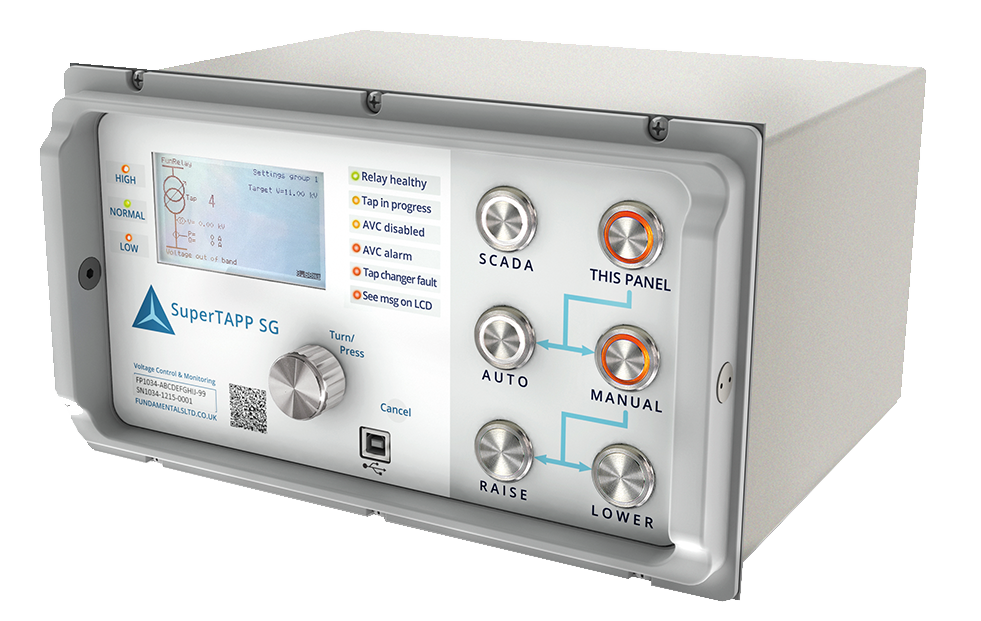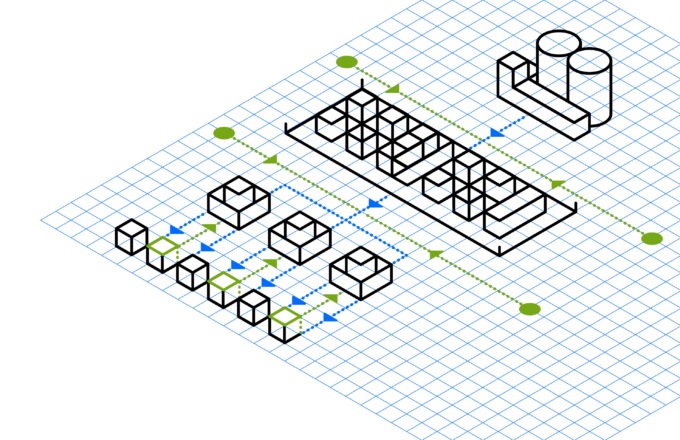RIIO-ED2 support for CLASS is good news for DNOs, customers & net zero carbon

Ofgem’s decision to encourage DNOs to deploy Customer Load Active System Services (CLASS) as part of RIIO-ED2 is good news all round. And Fundamentals is delighted to have contributed the key voltage control technology which has driven its development – our SuperTAPP SG Automatic Voltage Control (AVC) relay.
Ofgem’s ‘Regulatory treatment of CLASS as a balancing service’ consultation in March stated: ‘Our analysis shows that CLASS is a cost effective, low carbon technology that has the potential to reduce energy bills for consumers. (It) would have the additional benefit of rewarding consumers for sound investments made by the DNOs in the form of lower Distribution Use of System (DUoS) charges when DNOs earn profits.’
Since 2016 under RIIO-ED1, Electricity North West (ENWL) has been allowed to use CLASS to sell balancing services to the National Grid Electricity System Operator (ESO), through remote voltage management at substations. We believe the decision on RIIO-ED2, running for five years from April 2023, actively encourages DNOs to deploy it more widely, in competition with several other flexibility services that will be needed to meet the full scope of the ESO’s future balancing service requirements.
From DNO to DSO
Ofgem’s consultation document stated that allowing DNOs to deploy CLASS is a departure from its policy that DNOs should not undertake activities that can be performed by third parties, as it is effectively a Distribution System Operator (DSO) role.
But it added: “The circumstances in this case lead us to conclude that it is in the consumer interest to take an alternative stance. Only DNOs can provide CLASS and our updated assessment suggests that the net economic benefit is likely to be significant.
“Prohibiting CLASS would narrow the set of choices available to the ESO and mean consumers faced higher electricity bills than they might otherwise do.”
Ofgem’s impact assessment for CLASS suggests it could be worth more than £1 billion in terms of Net Present Value (NPV), depending on how widely it is adopted.
Full Chain Flexibility
We wholeheartedly agree with Ofgem’s belief that CLASS can make a major contribution to its Full Chain Flexibility vision for a secure, affordable, net-zero system, where all connected resources can flexibly respond to available energy and network capacity – and make it easier to bring more renewable generation online, whilst keeping costs down for consumers.
Ofgem said: “The results of Cost Benefit Analysis (CBA) indicate that the economic net benefit of CLASS is expected to be strongly positive across all regulatory options and deployment scenarios. CLASS is a competitively priced technology.”
In other words, CLASS is an oven-ready solution that is field-proven over more than five years, affordable, easy to deploy and with demonstrable potential to delivery financial benefits for DNOs and customers alike.
CLASS origins
CLASS originated as an Electricity North West Limited (ENWL) innovation project, funded through Ofgem’s Low Carbon Network Fund (LCNF). It demonstrated that by remotely managing transformers and circuit breakers at primary substations to change voltage, DNOs can reduce or increase power demand and absorb reactive power.
We needed an advanced voltage control relay to enable us to deliver a range of innovative functions and selected the Fundamentals SuperTAPP SG as the best tool for the job. Fundamentals provided us with first class engineering design, quality relays and wallboxes. They were a key part of the install programme.
ENWL’s Steve Cox

ENWL installed Fundamentals’ SuperTAPP SG Smart voltage control relays in grid substations linked to its Control Centre. An advanced network management system supplied by Schneider Electric enabled the network to respond, in real-time, to requests from National Grid.
Before the full rollout, the company successfully ran trials on 60 primary substations – around 17% of its network and 485,000 customers. Data on voltage and power quality was collected and analysed, to quantify the effects of the trial on the regional and national electricity networks, as well as customer electricity supplies.
Read more:
Fundamentals CLASS case study
Learn more

- Article
- Automatic Voltage Control (AVC/AVR)
UK electricity 2033 – the decade of revolution

- Article
- Automatic Voltage Control (AVC/AVR)
New UK energy security strategy is short on actions for grid to enable net zero carbon

- Article
- Automatic Voltage Control (AVC/AVR)
Your Invitation to the GridCell Project Workshop: Community Energy Trading

- Article
- Automatic Voltage Control (AVC/AVR)
- Control Scheme Services
- LV Network Control
- Tapchanger Services